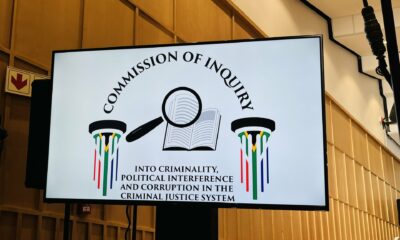News
A R3.8m Bill After 30 Years: Tshwane Ends Decades-Old Lease, Shocks Property Owner

A Pretoria East property owner is facing a financial shock after the City of Tshwane abruptly ended a lease agreement that had been in place for decades and presented them with a demand for R3.8 million. The move has exposed a complex and long-dormant municipal saga, leaving the landowner grappling with a massive, unexpected liability.
The lease, which dates back over thirty years, was a quiet arrangement that recently came under the scrutiny of the city’s renewed efforts to audit its assets and revenue streams. The termination of the agreement signals a decisive end to this long-standing arrangement, but it is the accompanying multi-million rand bill that has caused alarm.
The Anatomy of a Multi-Million Rand Demand
While the specific details of the R3.8 million calculation are complex, such demands in municipal contexts often stem from a re-assessment of historical obligations. This could include a combination of:
-
Backed Rental: Arrears based on a re-evaluated, modern rental value for the property, applied retroactively.
-
Municipal Services: Charges for water, electricity, and rates that the city claims were not paid for by the tenant but remained the responsibility of the landowner under the lease terms.
-
Penalties and Interest: Substantial interest and administrative fees accrued over many years on the disputed amount.
For the property owner, this demand likely feels like an ambush, a sudden financial burden arising from an agreement they may have assumed was settled and straightforward.
A Clash Over Legacy Agreements
The situation highlights the friction that can occur when a modernizing municipality collides with legacy contracts from a different era. The city’s perspective is likely one of recouping what it believes is owed to the public purse, correcting what may be seen as an outdated and undervalued agreement.
For the landowner, it represents a fundamental breach of stability. A deal that stood for a generation has been overturned, creating immediate financial jeopardy and raising questions about the security of other long-term contracts with the city.
A Legal and Financial Quagmire
The property owner is now faced with a difficult choice: negotiate a settlement with the city or prepare for a protracted and expensive legal battle. The R3.8 million demand is not just a bill; it is the start of a dispute that will hinge on the interpretation of a decades-old contract and the city’s right to reassess it so dramatically.
This case serves as a cautionary tale for all parties involved in long-term leases with municipal entities. It underscores the importance of clear, modern contracts and the ever-present risk that changing municipal priorities and financial pressures can bring historic agreements under a harsh and costly new light.
{Source: IOL}
Follow Joburg ETC on Facebook, Twitter , TikTok and Instagram
For more News in Johannesburg, visit joburgetc.com



























